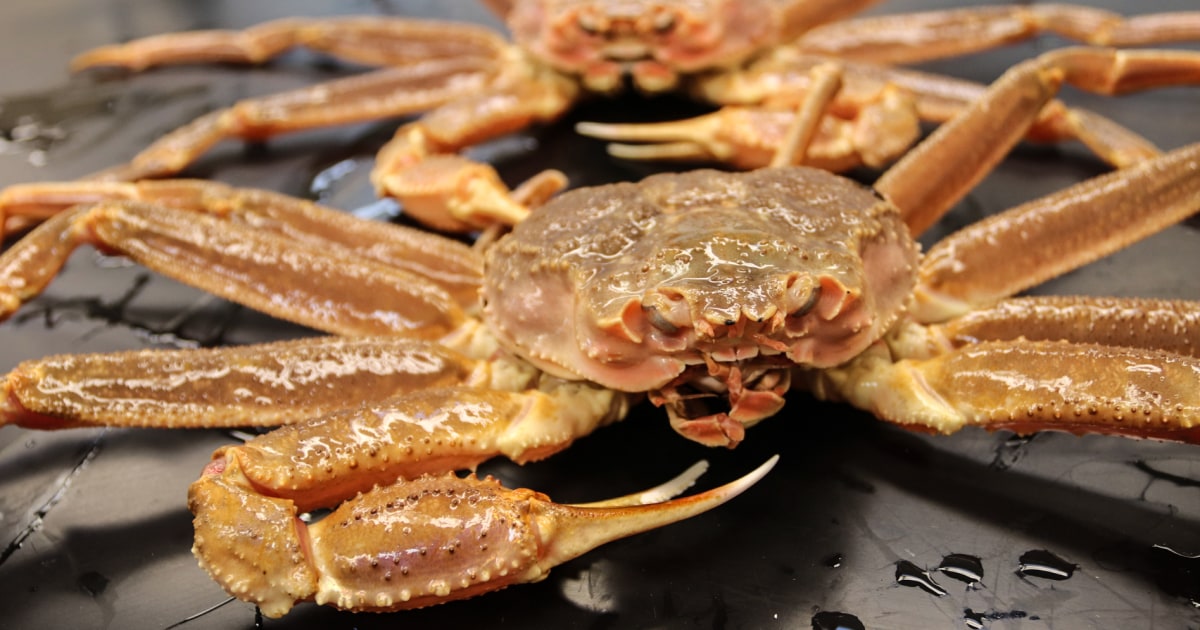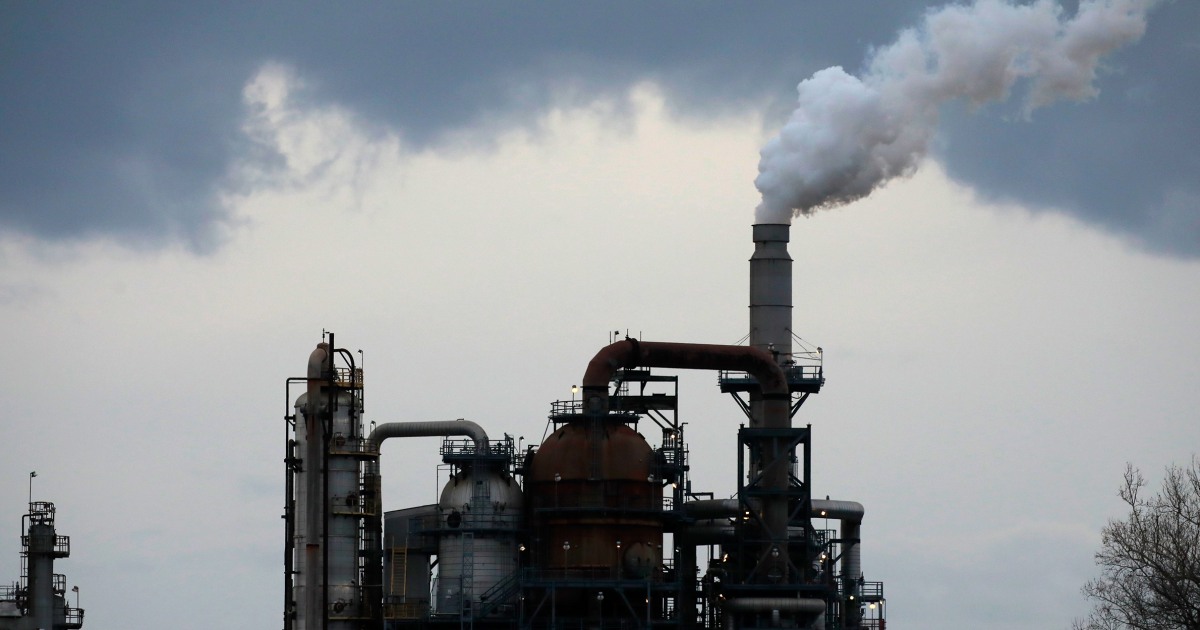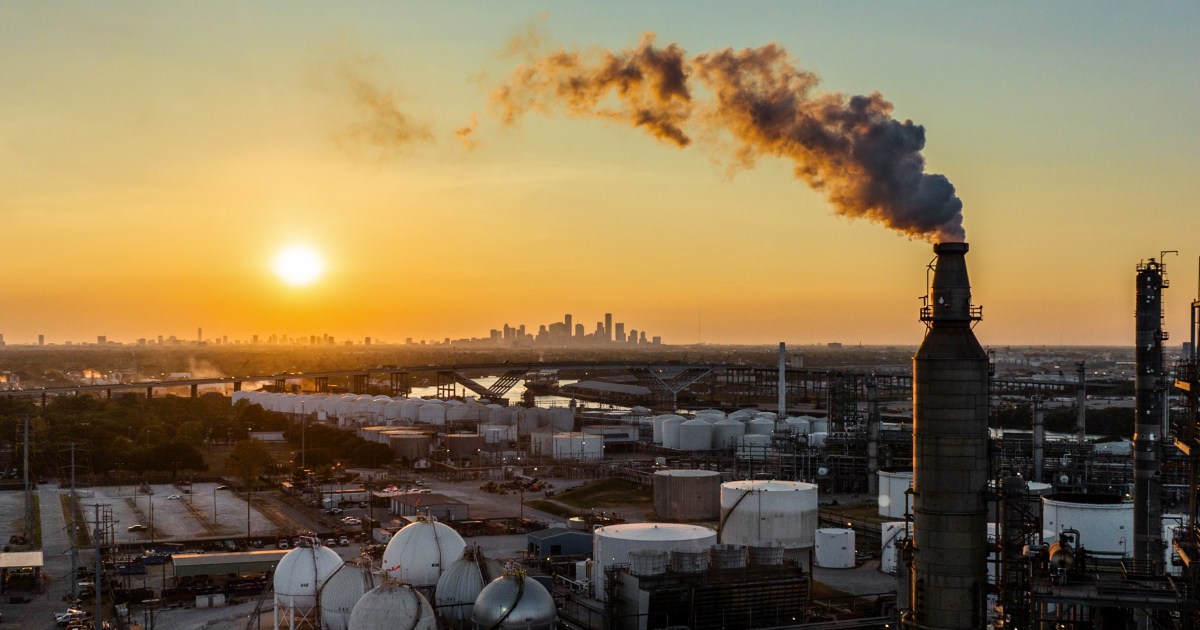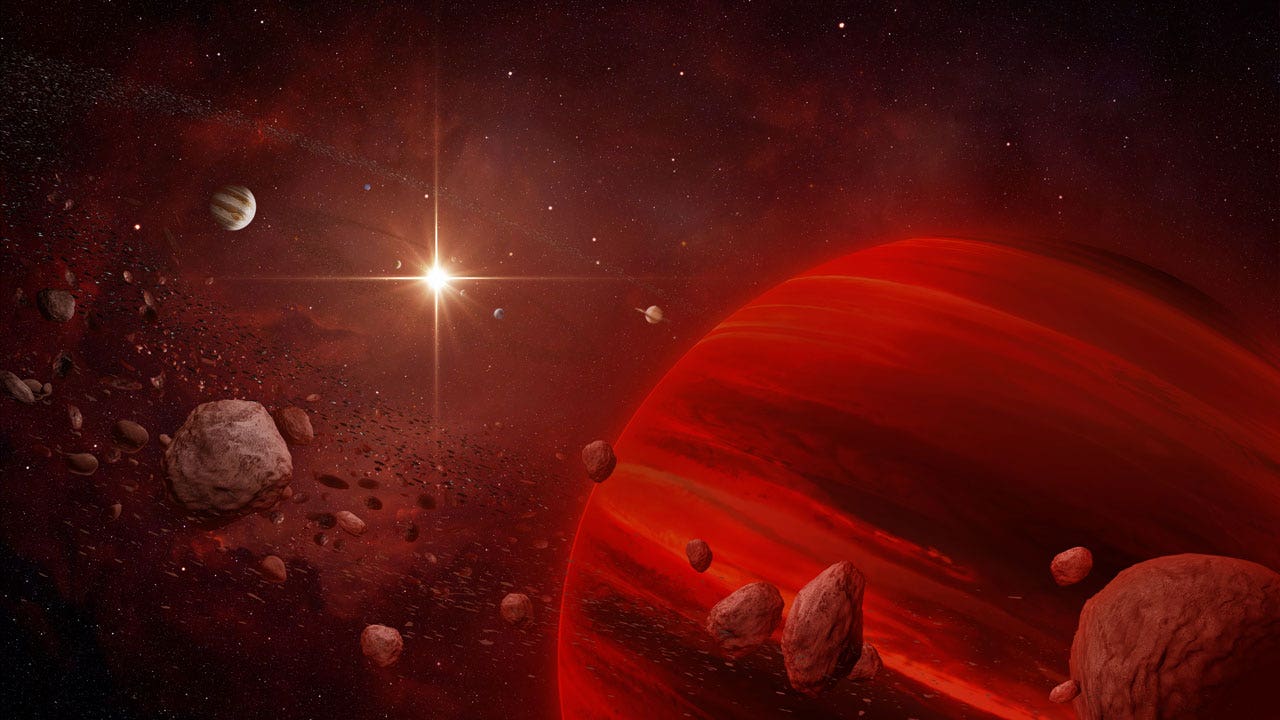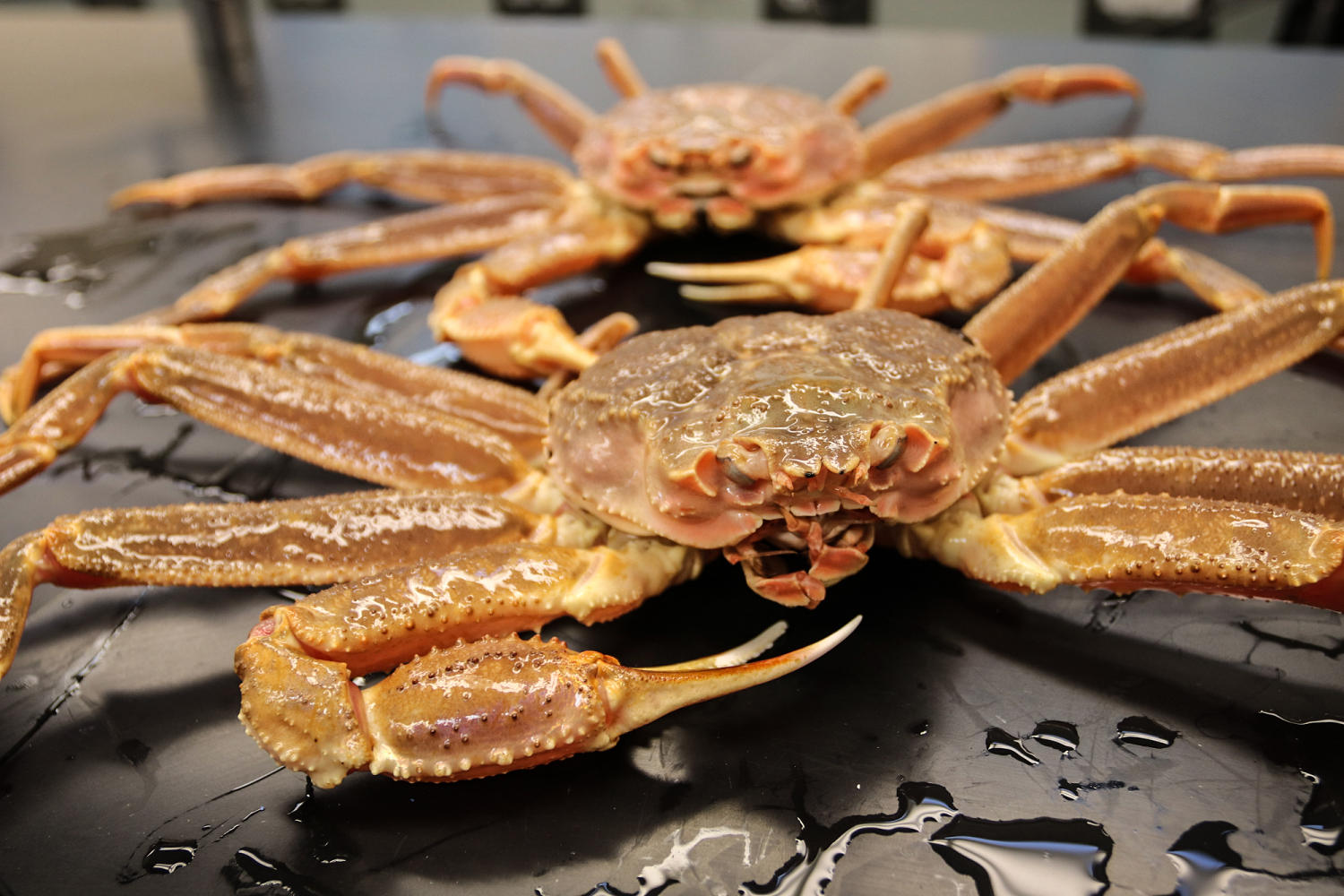
About 10 billion snow crabs disappeared from the waters of the Bering Sea between 2018 and 2021, forcing Alaska’s fisheries to shut final winter and threatening the state’s economic system. Now, scientists suppose they know what occurred to them.
A research printed Thursday within the journal Science means that the crabs possible suffered mass hunger brought on by excessive ocean warmth seasons.
The inhabitants collapse – from the best degree on report in 2018 – reveals how marine heatwaves, made extra possible by local weather change, can disrupt ecosystems and threaten human livelihoods that depend upon life within the oceans.
“Local weather change is the subsequent existential disaster for fisheries, and snow crabs are a major instance of how rapidly the outlook for populations can change,” the research authors wrote.
Snow crabs require chilly water to outlive. In summer season, they typically congregate in a chilly pool that kinds on the backside of the Bering Sea, between Alaska and Siberia.
In 2018 and 2019, marine heatwaves within the Bering Sea meant there was virtually no chilly pool.
Most cancers metabolism is dependent upon temperature. The rise in water temperatures possible elevated the crabs’ caloric wants when their populations have been extremely focused on the seafloor, resulting in mass hunger.
The researchers have been in a position to rule out different points that might result in inhabitants collapse, together with trawling, predation by different species and ailments. It’s attainable that the crabs migrated to a different place on the ocean ground, however ships surveying different areas have been unable to seek out them.
Snow crabs are huge enterprise in Alaska. A fleet of practically 60 crab vessels caught snow crab in 2020, totaling practically $132 million, in line with a report from the Alaska Fisheries Info Community and the Nationwide Oceanic and Atmospheric Administration.
The mass die-off has shut down the snow crab season throughout the winter of 2022-2023.
The variety of snow crabs continues to be too low to catch. Earlier this month, the Alaska Division of Fish and Recreation and the Nationwide Marine Fisheries Service introduced He announced that the season will remain closed this winterWhich guarantees one other troublesome season for the crab fishing trade.
